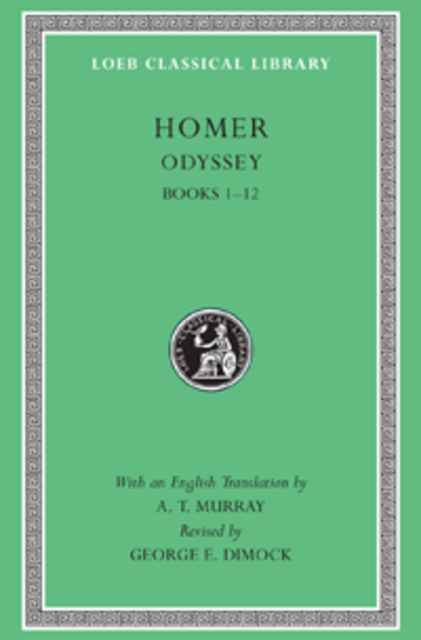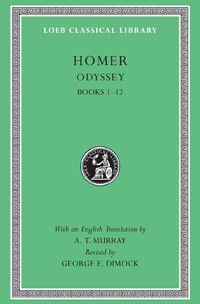Achilles in Book XI of the Odyssey, Volume 1

Full description
"The Odyssey is an epic poem in 24 books traditionally attributed to the ancient Greek poet Homer. The poem is the story of Odysseus, king of Ithaca, who wanders for 10 years (although the action of the poem covers only the final six weeks) trying to get home after the Trojan War." - Britannica
Book 11 feature's Odysseus’s journey to the Land of the Dead, or the Greek mythological underworld. Seeking advice, he is informed to seek out and speak with Tiresias, a blind prophet. Along the way, he runs into Achilles, a fated character of the Trojan war.
We find this an interesting prospect, because his honor in life does not necessarily come with him to his afterlife. After all, everyone is sent to the same underworld in the Greek world. He himself speaks on this, and shares that he would much rather be alive at a place of comfort than what he had: "If but in such strength I could come, were it but for an hour, to my father's house, I would give many a one of those who do him violence and keep him from his honor, cause to rue my strength and my invincible hands." This offers the opportunity for a variety of perspectives to arise, as seeing Achilles in death is a reminder of his complexity as a man while in life. The British Museum suggests a variety of interpretations, including one where his time in the underworld is representative of his passionate nature. "In Dante's Inferno, Achilles appears in the second circle of hell, that of lust." Other narratives discuss the idea of a fated hero, that despite how great of a man he was, he was doomed to die. Despite being such a near 'perfect' person, he dies young and misses the opportunities the common person might take for granted. While people may strive towards Achilles' character, we may also question if it is worth it.
[465] “Thus we two stood and held sad converse with one another, sorrowing and shedding big tears; and there came up the spirit of Achilles, son of Peleus, and those of Patroclus and of peerless Antilochus and of Aias, who in comeliness and form was the goodliest of all the Danaans after the peerless son of Peleus. And the spirit of the swift-footed son of Aeacus recognized me, and weeping, spoke to me winged words: `Son of Laertes, sprung from Zeus, Odysseus of many devices, rash man, what deed yet greater than this wilt thou devise in thy heart? How didst thou dare to come down to Hades, where dwell the unheeding dead, the phantoms of men outworn.’
Reading: https://www.theoi.com/Text/HomerOdyssey11.html
Harvard University Press; 2nd edition (January 1, 1995)
Translated by A. T. Murray
Revised by George E. Dimock
"Here is a new Loeb Classical Library edition of the resplendent epic tale of Odysseus’s long journey home from the Trojan War and the legendary temptations, delays, and perils he faced at every turn. Homer’s classic poem features Odysseus’s encounters with the beautiful nymph Calypso; the queenly but wily Circe; the Lotus-eaters, who fed his men their memory-stealing drug; the man-eating, one-eyed Cyclops; the Laestrygonian giants; the souls of the dead in Hades; the beguiling Sirens; the treacherous Scylla and Charybdis. Here, too, is the hero’s faithful wife, Penelope, weaving a shroud by day and unraveling it by night, in order to thwart the numerous suitors attempting to take Odysseus’s place." - Loeb Classical Library
Comments
to view and add comments.
Annotations
No one has annotated a text with this resource yet.
- typeImage
- created on
- file formatpng
- file size37 kB
- creatorHomer; George E. Dimock A. T. Murray (Translator)
- edition2
- isbn0674995619
- publisherHarvard University Press
- publisher placeCambridge, MA


